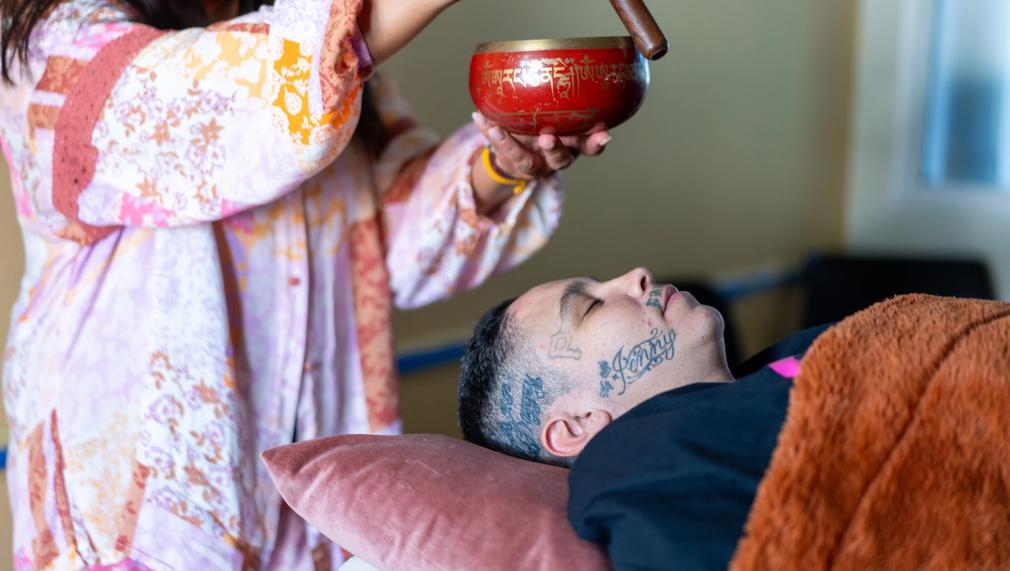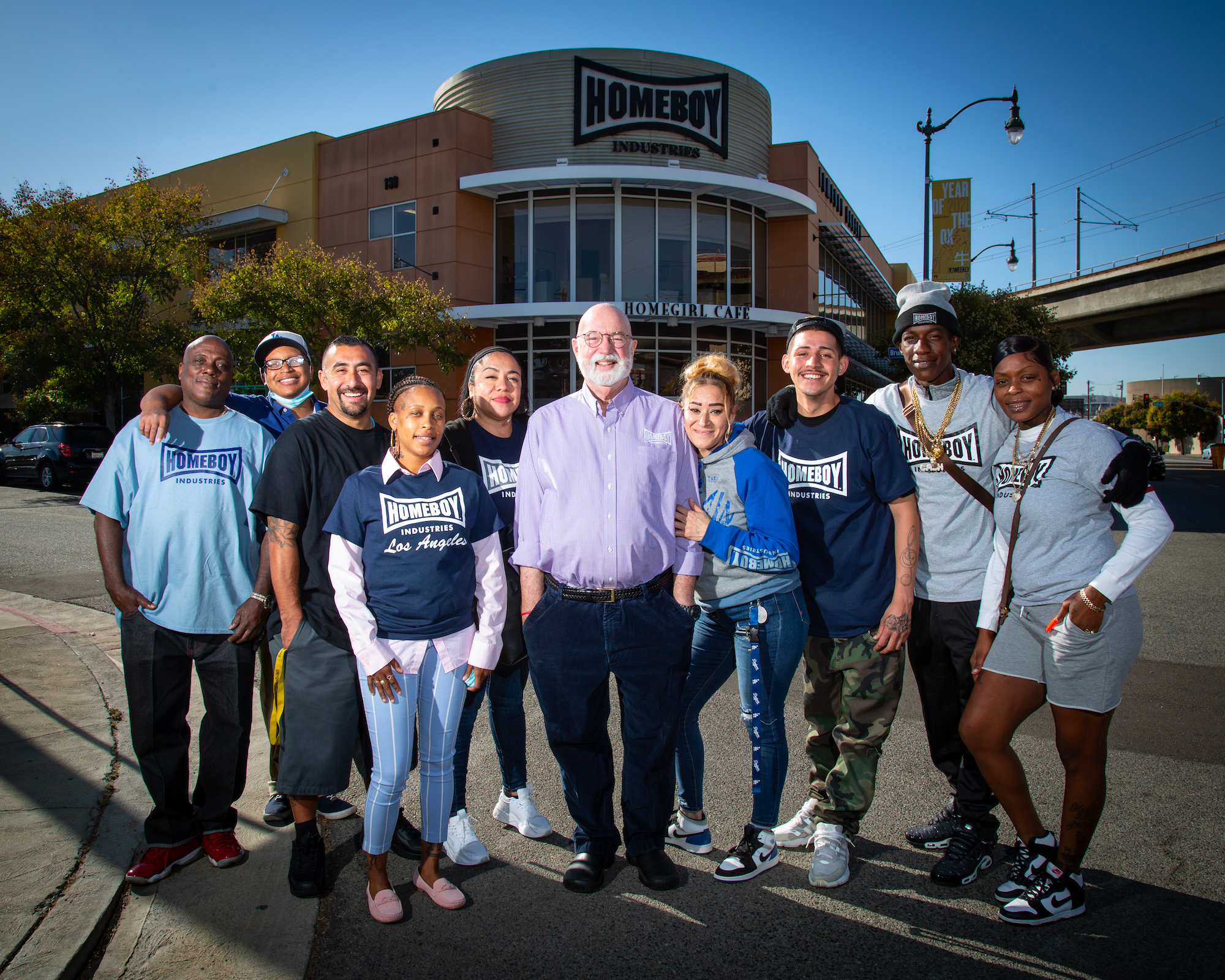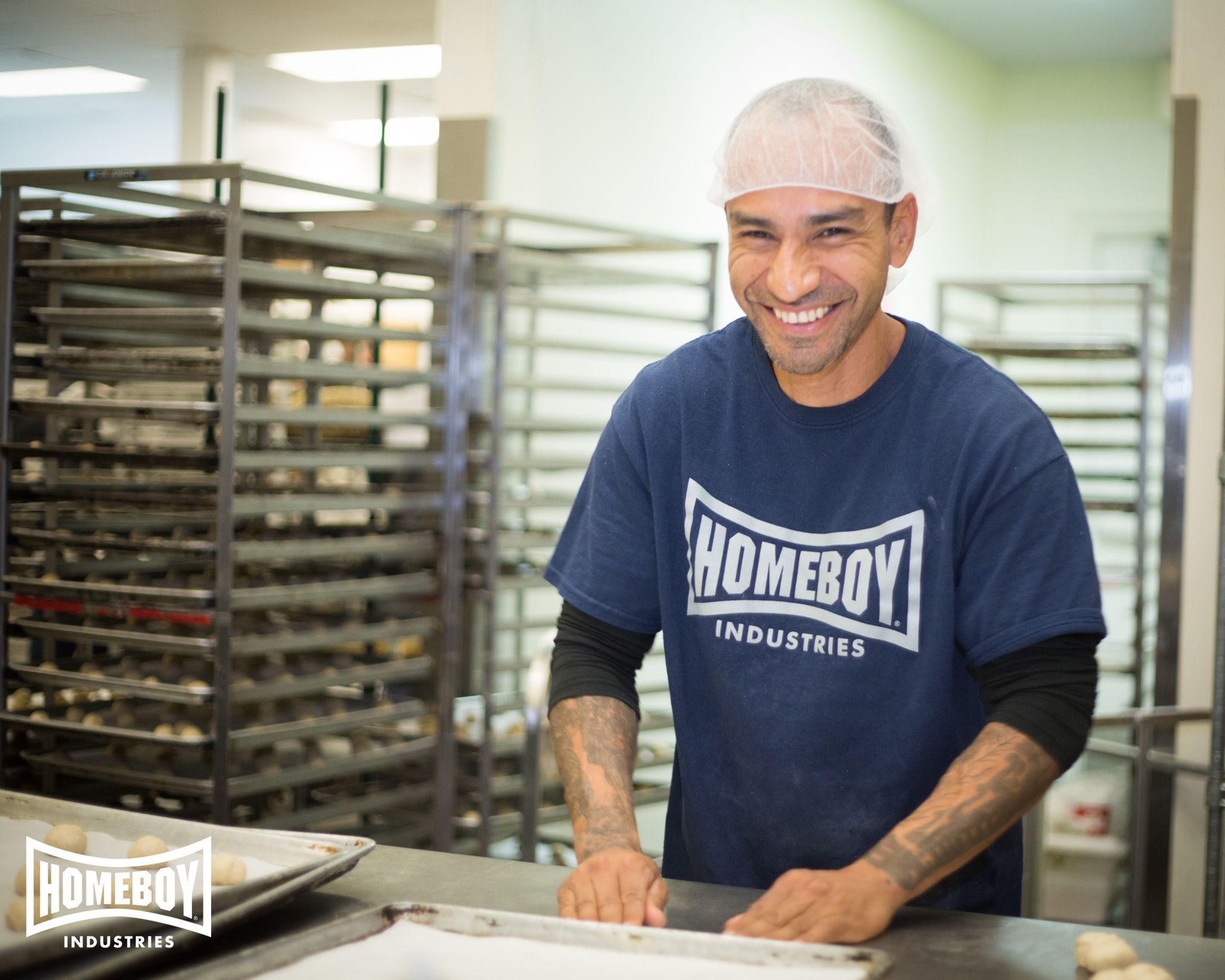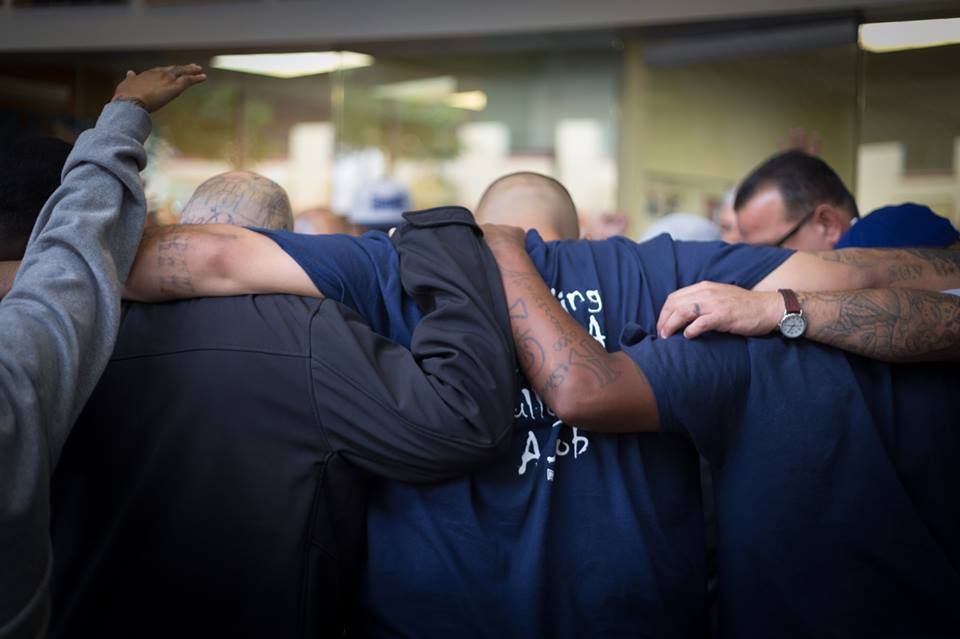Homeboy Industries
Homeboy Industries provides hope, training, and support to formerly gang-involved and previously incarcerated men and women, allowing them to redirect their lives and become contributing members of our community.
Visit this organization’s website to learn more

8 Submitted Ideas
 CONNECT ·2024 Grants Challenge·🎉 2024 Funding Partner Winner
CONNECT ·2024 Grants Challenge·🎉 2024 Funding Partner WinnerHomeboy Industries' Mental Health and Wellness Program for Justice System-Impacted People
Advancing mental health and mental well-being is a core component of Homeboy’s approach to healing and ending recidivism. Our Mental Health and Wellness Program provides substance use disorder (SUD) services, including a new in-house, out-patient SUD recovery program; 1:1 and group therapy; psychiatry; parenting and relationship counseling; wellness workshops; and a growing domestic violence program. Homeboy also provides all staff trainings to build a culture of health and improve our capacity to respond to acute crises.
 LEARN ·2022 Grants Challenge·🎉 2022 Hilton Foundation Winner
LEARN ·2022 Grants Challenge·🎉 2022 Hilton Foundation WinnerHomeboy Industries' Youth Reentry Center

A key resource for systems-impacted (at-risk and/or formerly gang involved or incarcerated) youth, Homeboy Industries’ Youth Reentry Center provides LA County youth ages 14-21 with the support and resources needed to exit gang life and prevent involvement in the adult justice system. As the first and only program of its kind in LA County, the Youth Reentry Center utilizes the expertise developed through Homeboy Industries’ 34 year history supporting similarly situated adults to guide youth as they become the best version of themselves.
- 2013 Grants Challenge·🎉 2013 Goldhirsh Foundation Winner
Homeboy Industries: Hope Has An Address
Homeboy Industries began when a concerned group of Angelenos, led by Father Gregory Boyle, asked a simple question: Can we improve the safety and health of our communities through jobs and education rather than through suppression and incarceration? In our 25 years providing services to Angelenos impacted by gang violence, we have learned that jobs, education and support services can indeed have a direct – and profound – impact on public safety. We have also learned that the success of our program corresponds directly with our ability to address the root causes of violence, alienation, and fear among communities and community members who are unsafe.
In this program, we propose to improve public safety through an integrated curriculum of ten classes that help end the intergenerational cycles of violence that many former gang members and recently incarcerated men and women have experienced. The classes and support groups we offer foster the personal transformation necessary for our clients to heal from their complex traumatic histories and prevent their children, families and communities from experiencing similar trauma.
400 individuals attend classes each month at Homeboy Industries’ headquarters. Classes in the curriculum are led by Homeboy Industries staff, licensed mental health clinicians, and qualified volunteers. The core classes impacting public safety include:
1) Anger Management: Provides our population with tools to develop healthy coping skills, build healthy relationships, and deal with conflict in non-violent ways.
2) Parenting: Provides parents, particularly young parents, with the skills and techniques to improve their relationships with their children and end the cycles of violence, abuse and neglect they may have experienced in their own childhood.
3) Project Fatherhood: Provides fathers an opportunity to connect with their children, play a meaningful role in their lives, and positively affect their children’s healthy development.
4) Baby & Me: A weekly meeting for parents and their young children that provides activities to strengthen secure attachment, increase parents’ empathy for and understanding of their children’s needs, and decrease the likelihood of abuse or neglect.
5) Leadership: A weekly class that helps participants build leadership skills, and discusses related topics of resiliency, forgiveness, character-building, loss, and separation.
6) Healthy Relationships for Women: A weekly class that helps women who have been victims of domestic and/or sexual violence develop healthy and safe relationship expectations and practices.
7) Domestic Violence Intervention for Women: A weekly group meeting that addresses domestic violence, helping batterers gain the tools and self-empowerment necessary to stop family violence and develop positive coping skills.
8) Domestic Violence Intervention for Men: A court-approved program for male batterers that teaches life skills to build healthy coping mechanisms and healthy relationships, and to encourage men to take responsibility for their acts of violence.
9) Healing Circle: A weekly meeting that provides space for reflection, empowerment, and respect while peers embrace the struggles in their lives and help each other find meaning in their past.
10) Substance Abuse: A 3-phase course offering bi-weekly group support meetings, these classes help clients establish and maintain long-term recovery from the addictions that often influence their involvement with gangs and crime.
Classes are available to trainees (men and women who are employed by Homeboy Industries in entry-level positions either at our organizational headquarters or in our social enterprise businesses) and to community clients (people impacted by gang violence, poverty and other issues who are not currently employed by Homeboy Industries).
The classes we offer complement the variety of other proven strategies we use to prevent violence and improve public safety. Homeboy Industries employs 200 trainees at all times (approximately 300 are employed throughout the year) at our organizational headquarters and our social enterprise businesses. As part of the job, trainees also:
• Attend practical, educational and vocational classes to earn high school degrees or GEDs and improve their employment readiness;
• Receive mental health and substance abuse treatment to address the underlying causes of their interactions with law enforcement and the criminal justice system;
• Undergo tattoo removal procedures to eliminate the external marks of their former involvement with gangs;
• Work individually with case managers and employment counselors to establish an educational and employment plan and transition successfully to outside work;
• Access much needed medical services.
All services are provided free of charge, and most are available to trainees and to community clients.  CREATE ·2023 Grants Challenge
CREATE ·2023 Grants ChallengeHomeboy Art Academy
The Homeboy Art Academy offers a groundbreaking and effective strategy to help formerly incarcerated and gang-involved people heal from complex trauma. In addition to therapeutic, multi-generational arts programming, the Homeboy Art Academy provides in-demand digital arts skills training to prepare youth and young adults for in-demand careers within creative industries, and links youth to mentors who can guide them through both skills development and career planning in creative economy careers.
 CREATE ·2021 Grants Challenge
CREATE ·2021 Grants ChallengeCare First, Jails Last: Workforce Development and Healing for Formerly Incarcerated or Gang Involved Angelenos
Homeboy Industries seeks to change the way the world views, treats, and judges the most marginalized and demonized – formerly gang involved and incarcerated men, women, and youth. Our core program, the 18-month reentry program, is at the heart of our work, and delivers comprehensive wrap around services and job training through a trauma informed, healing focused lens. At Homeboy, those who are formerly gang involved or previously incarcerated, regardless of background, can get the help needed to find the best version of themselves.
 CREATE ·2019 Grants Challenge
CREATE ·2019 Grants ChallengeHomeboy will help make Los Angeles a better place to create job opportunities for the formerly incarcerated

Each year, Homeboy Industries serves over 8,000 clients with a wide-range of trauma-informed services, employing over 400 clients as trainees in transitional employment. With seven social enterprises and various relationships with felon-friendly employers, Homeboy acts as a promising employment launch point for many Angelenos with a criminal record. Our unique healing-focused and community-based model gives trainees an unparalleled level of support during their transformational journey.
 CONNECT ·2018 Grants Challenge
CONNECT ·2018 Grants ChallengeHomeboy and LA Voice: Organizing formerly incarcerated Angelenos to vote

Activate 100,000 Angelenos in civic engagement, increasing voter participation and supporting community organizing among formerly incarcerated and formerly gang-involved men and women.
 CONNECT ·2016 Grants Challenge
CONNECT ·2016 Grants ChallengeGlobal Homeboy Network: Connecting Through Kinship
Since 1988 Homeboy Industries has helped people leave gang life; now the Global Homeboy Network connects other organizations that stand with marginalized populations, because together we are stronger.